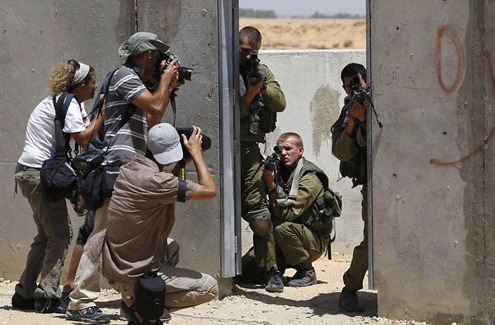The Anatomy of Disinformation Through the Eyes of Russian Experts
The Anatomy of Disinformation Through the Eyes of Russian Experts
By Yıldıran Acar, Political Scientist
The wars of the 21st century are no longer fought solely with tanks, drones, or missiles. The true battlefield now lies within the human mind in the realm of information, perception, and meaning.
For Russian strategists, this new phase of hybrid warfare is not just an extension of foreign policy; it represents the core of national security itself.
The Siege of Truth: Disinformation as a Strategic Weapon
According to Professor Andrey Manoilo of Moscow State University, Dean of the Faculty of Information Technologies at Alter Academy, disinformation is not merely a communication failure but a systematic assault on political stability.
Its aim is to erode public trust in national information sources, create crises of legitimacy, and mislead decision-makers. In Manoilo’s words:
“Fake news does not target the individual alone — it targets society as a whole, producing division, panic, and distrust.”
Within Russian strategic thinking, this process is viewed as a form of mental colonization, a campaign that replaces a nation’s interpretive frameworks with externally engineered narratives.
Institutions such as the Institute for the Study of War in the West have, at times, influenced even Russian analytical circles. This, Manoilo warns, illustrates a new phenomenon he calls “narrative intelligence” — the infiltration of seemingly objective academic data that subtly manipulates perception.
Thus, disinformation no longer spreads through crude lies; it spreads through scientifically packaged narratives designed to reshape reality itself.
The War for Minds: When Perception Becomes a Weapon
Dmitry Nechaev, head of RIA Verhnevolzhye, describes the phenomenon as a “war for minds.” His warning is strikingly direct:
“Destruction begins in the head. For years, we underestimated the dangers of ideological manipulation. Now our task is to reclaim the truth — and convey it in a persuasive, human language.”
This statement reflects a central principle of Russia’s information security doctrine: information is not merely data — it is an instrument of cultural sovereignty.
According to Nechaev, the battle against disinformation cannot be won solely through exposure of lies; it requires the reconstruction of truth as a compelling narrative.
In this framework, the primary weapon of information warfare is not the message itself, but the emotional response it provokes.
Disinformation disables critical thinking and activates fear, anger, and confusion — emotions that spread faster than any verified fact.
The first emotional strike, as Russian experts often note, can rarely be undone by later corrections.
From the Local to the Global: The Crisis of Trust in the Information Space
Grigory Borisov, an analyst at the Tver Regional Management Center, emphasizes that disinformation is no longer a federal or geopolitical concern alone — it has become a local security issue.
Anonymous Telegram channels and fabricated local news stories have been used to create panic and delegitimize regional authorities.
“This threat exists not only at the federal but also at the regional level,” Borisov asserts. “Combating fake news requires joint action from authorities, the media, and the public.”
This statement underscores Russia’s drive to centralize its information defense infrastructure. The creation of unified state systems for information operations and specialized training for journalists is no longer viewed as propaganda management — but as a defensive necessity in hybrid warfare.
The Journalist as a Defender: Producing Meaning on the Front Line
Veteran journalist Galina Andreenko offers a striking metaphor for the information sphere:
“The information field is like a cultivated field. If left untended, weeds will grow — and today, many people’s minds are overrun with them.”
Her words capture the essence of Russia’s perception of information warfare. The journalist is no longer a neutral observer but a guardian of knowledge.
This transforms journalism into a moral defense line — one that requires both professional discipline and ethical commitment.
Disinformation, in this light, is not only a technical or factual problem; it is a crisis of meaning.
Dmitry Fadeev, head of the Tver branch of the Russian Union of Journalists, extends this argument further:
“A newspaper is read when its word is trusted. We must not write in the dry language of press releases; we must speak vividly, sincerely, as human beings. Today, the journalist is not just a reporter — he is a defender of his country on the ideological front.”
Fadeev’s assertion encapsulates a broader transformation: journalism as semantic defense. In this paradigm, every piece of writing contributes either to cohesion or fragmentation. The journalist thus becomes an active participant in national resilience.
Conclusion: Information Unity as the Foundation of National Security
Russian experts converge on a single conclusion: information unity has become the foundation of national security.
In the age of hybrid threats, the state must protect not only its borders but its collective consciousness. The integrity of public discourse — the ability to distinguish truth from fabrication, is now considered a strategic asset.
This perspective diverges sharply from Western liberal models of journalism centered on free expression. In the Russian analytical tradition, information warfare is not a question of ethics but of existence. Because in the digital century, wars are no longer fought for territory — they are fought for the sovereignty of minds.

















Leave a Reply